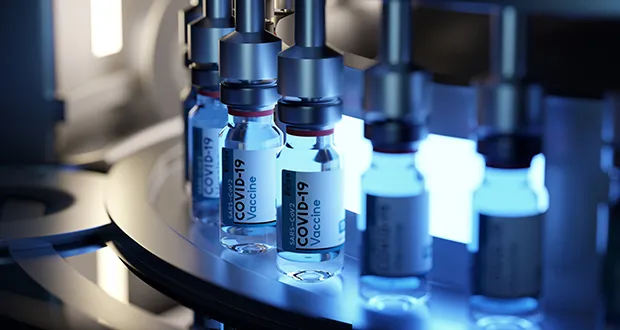Pfizer-BioNTech inoculation may have broader effects on the immune system, helping to reduce inflammation in a way similar to anti-inflammatory trained immunity, new paper suggests One of the ground-breaking vaccines developed to prevent the worst effects of COVID-19 has also been found to reduce and control inflammation in other infections, Irish researchers have found. In a study of the next-generation mRNA-based vaccine produced by Pfizer-BioNTech, (BNT162b2), scientists based in Trinity College Dublin found that the immunisation also unexpectedly helped to reduce and control innate inflammation to other bacterial and fungal pathogens not related to COVID-19. The research was undertaken with eight healthy volunteers who gave blood before getting the BNT162b2 vaccine, and again on days 14 and 28 after the first dose.
The study showed that the vaccine dampened the production of inflammatory mediators to bacterial, fungal and viral pathogens (compared with innate immune responses induced in the same person prior to vaccination) and proteomic analysis demonstrated a reduction in inflammatory markers post-vaccination. “The findings of our study highlight the importance of exploring innate immune responses to vaccination after initial priming,” said Sarah Connolly, the PhD student in the Basdeo lab at St James’s Hospital who undertook this research. “This work establishes that mRNA vaccination can alter innate immune responses to both related and unrelated pathogens.

This is impactful because it will inform on the wider immunological effects of vaccination and how this can be used to optimise vaccine design and scheduling.” A previously diagnosed phenomenon called trained immunity refers to the memory function within the innate immune system. It helps the body react more quickly and powerfully to a broad range of infections.
Licensed vaccines during the pandemic saw a shift towards using next-generation mRNA-based vaccines. The BNT162b2 mRNA vaccine proved to be highly effective against severe Covid-19 and related mortality. While SARS-CoV-2-specific-adaptive immune responses, such as antibody production and the development of classic immune memory from specialised adaptive immune cells have been well characterised, the effect of mRNA vaccination on innate immune function, up until now, has not been fully understood.
The researchers hope their findings will lead to the development of future vaccines that that not only protect us from specific threats, but help prepare our immune systems to a broad range of future infectious challenges. “Since the mRNA vaccine platform is new and highly successful, this study has improved our understanding of its non-specific effects on innate immunity, which will help to inform pandemic preparedness and the ability of this platform to protect against other infectious diseases or regulate inflammation,” said senior author Dr Sharee Basdeo of the Trinity Translational Medicine Institute. The study was recently published in the journal Clinical Immunology with funding from Research Ireland.
.
Health

COVID vaccine may help to reduce inflammation in other infections – Irish study

Pfizer-BioNTech inoculation may have broader effects on the immune system, helping to reduce inflammation in a way similar to anti-inflammatory trained immunity, new paper suggestsThe post COVID vaccine may help to reduce inflammation in other infections – Irish study appeared first on Irish Medical Times.















